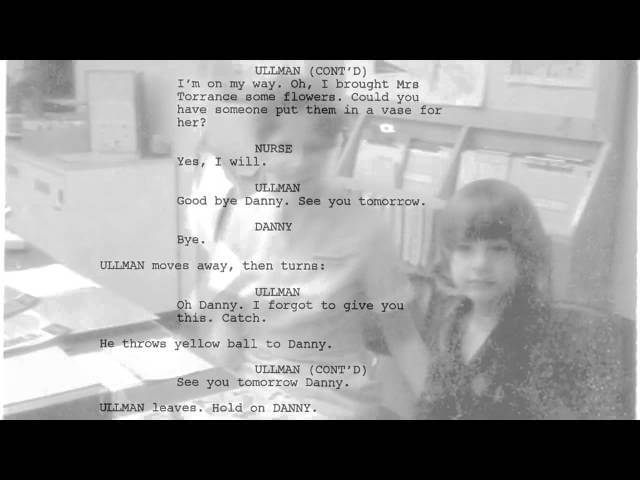Let’s scrape together The Shining epilogue that Stanley Kubrick destroyed

Stephen King is brilliant, but he’s also sometimes wrong. For years, the prolific horror author has asserted that Stanley Kubrick’s 1980 adaptation of The Shining is not just a bad adaptation but also a bad movie, “a Cadillac with no engine in it” that “you can’t do anything with… except admire it as sculpture.” That’s why King statements like this aren’t to be trusted (though It does look pretty badass).
The existence of Rodney Ascher’s 2012 documentary Room 237 is enough to dispute King’s latter critique, as is the continued level of interest and scholarship that surrounds the movie to this day. Take, for example, the proof of a scrapped conclusion that Kottke recently posted. Pages from the original script with the deleted scene were released by The Overlook Hotel, as were three continuity Polaroids from the filming of the scene. The scene was initially included in the U.S. opening, but Kubrick had it removed shortly after the premiere, and all known copies were reportedly destroyed.
The short scene was meant to slot in between the shot of Jack’s frozen corpse in the garden and the film’s final epilogue, and finds hotel manager Stuart Ullman visiting Danny and Wendy in the hospital and suggesting they stay in his home in L.A. It’s fairly innocuous, though The Overlook Hotel notes that “this was likely not the exact scene that Kubrick shot” and that “even the many people who saw the epilogue when The Shining was first released have varying recollections of the exact details.”





![HBO teases new Euphoria, Larry David, and much more in 2026 sizzle reel [Updated]](https://img.pastemagazine.com/wp-content/avuploads/2025/12/12100344/MixCollage-12-Dec-2025-09-56-AM-9137.jpg)


































